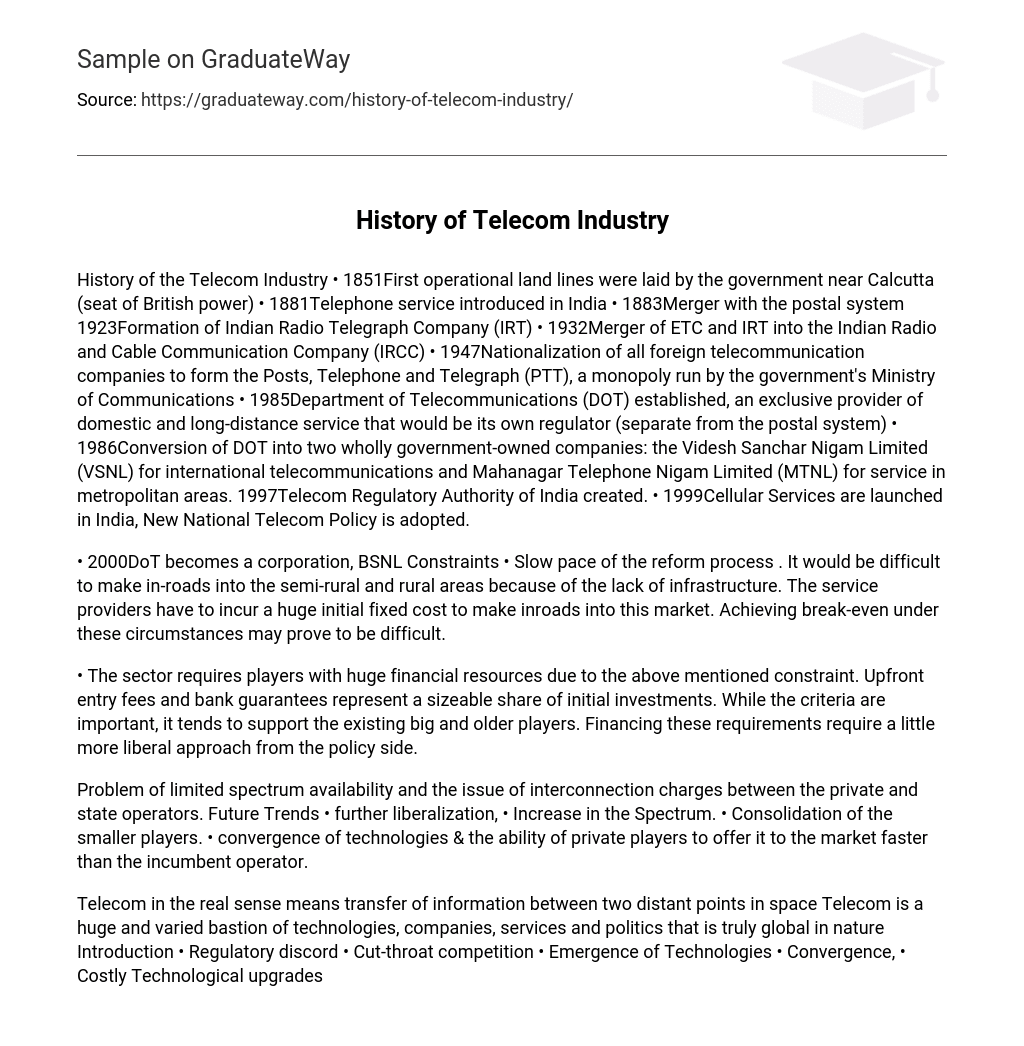History of the Telecom Industry • 1851First operational land lines were laid by the government near Calcutta (seat of British power) • 1881Telephone service introduced in India • 1883Merger with the postal system 1923Formation of Indian Radio Telegraph Company (IRT) • 1932Merger of ETC and IRT into the Indian Radio and Cable Communication Company (IRCC) • 1947Nationalization of all foreign telecommunication companies to form the Posts, Telephone and Telegraph (PTT), a monopoly run by the government’s Ministry of Communications • 1985Department of Telecommunications (DOT) established, an exclusive provider of domestic and long-distance service that would be its own regulator (separate from the postal system) • 1986Conversion of DOT into two wholly government-owned companies: the Videsh Sanchar Nigam Limited (VSNL) for international telecommunications and Mahanagar Telephone Nigam Limited (MTNL) for service in metropolitan areas. 1997Telecom Regulatory Authority of India created. • 1999Cellular Services are launched in India, New National Telecom Policy is adopted.
• In 2000, DoT becomes a corporation known as BSNL but faces constraints. The reform process is slow, making it challenging to establish a presence in semi-rural and rural areas due to infrastructure limitations. Service providers must invest a significant amount upfront in order to penetrate this market. Therefore, it may be difficult to achieve break-even in these circumstances.
• Due to the aforementioned constraint, the sector necessitates players who possess substantial financial resources. Significant portions of initial investments are accounted for by upfront entry fees and bank guarantees. Although these criteria are vital, they tend to favor the already established and larger players. A slightly more flexible approach from the policy side is needed to secure the financing for these requirements.
The limited availability of spectrum and interconnection charges between private and state operators pose challenges. Future trends include continued liberalization, an increase in spectrum availability, consolidation of smaller players, and the convergence of technologies. Private players have the ability to offer these advancements to the market at a faster rate than incumbent operators.
The concept of telecom refers to the transmission of information between two distant points in space. Telecom encompasses a vast array of technologies, companies, services, and political aspects that have a truly global reach. Key factors in this field include regulatory discord, intense competition, the emergence of new technologies, convergence of services, and the costly need for technological upgrades.





